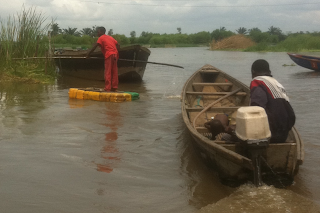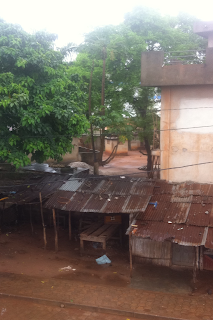EDEM aims to support orphans and vulnerable children (OVCs) in Benin through schooling, apprenticeship, social support and awareness raising. They have already managed to school 198 OVCs in Porto-Novo, but there is always greater need…
If you wish to make a personal contribution to the lives of these vulnerable children, please do so through the fundraising page:
All donations go to YACI which directly funds EDEM in Benin.
EDEM then pays the school fees and provides school supplies for OVCs.
In order to expand, EDEM needs to strengthen their
financial management. That's where I’ve been helping these two weeks. I reviewed the financial risks, independently verified the expenses of
EDEM, reviewed the financial procedures in place as of today, proposed updated financial
procedures, taught EDEM staff bookkeeping, reporting and budgeting and also identified
some potential future projects…
As the financial volunteer, I was connected with
YACI and EDEM by “Accounting for International Development” (AfID). If you are
a finance professional and would like to help similar charities around the world,
please contact AfID. As an organisation their objective is to provide
non-profits and social enterprises with specialist volunteer programmes
designed to build the financial management capacity of small community
organisations (www.afid.org.uk).
Thank you YACI, EDEM and AfID. Good luck!
Photo: this year’s school-start ceremony with the distribution of
school supplies.











